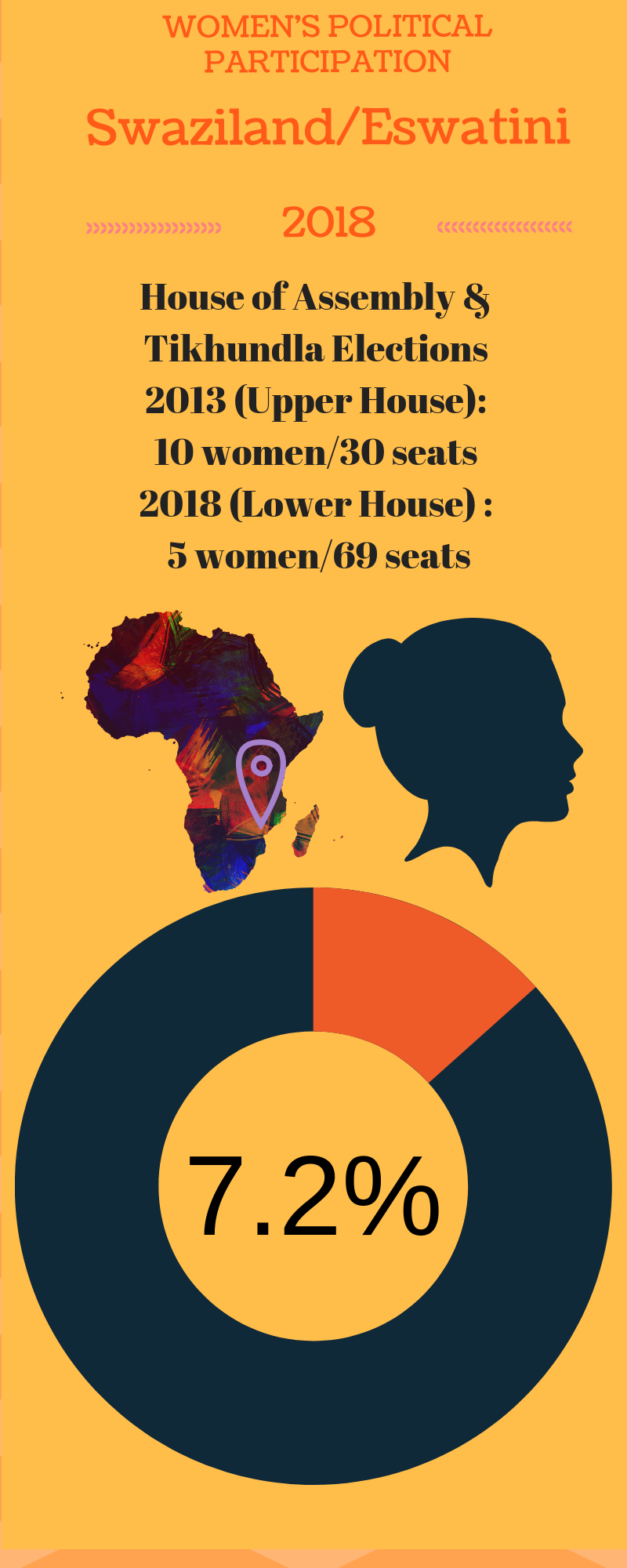The elections for House of Assembly & Tinhundla in Swaziland, recently renamed Eswatini, took place on September 21st, 2018. The election took a relatively low turnout: out of 544,310 voters, only 156,973 voted, representing 28.83% of registered voters for the primary elections.
The kingdom's Elections and Boundaries Commission (EBC) announced the winners at the 59 constituencies (known as tinkhundla) but no break-down giving the number of votes cast for each candidate has been released. This is not new in Swaziland, the full results of the previous election held in 2013 have never been published.
Swaziland’s political structure is a monarchical democracy with King Mswati as ruler. The political system follows both western as well as traditional methods of governance. Even though according to the constitution there is division of power between the Legislative, Executive and Judiciary, the king maintains absolute power. In Swaziland, political parties are banned from campaigning and participating to elections. Only non-partisans candidates can partake the elections. The general population votes for 59 members of the House of Assembly for a 5-years term service and the King furthers appoints 10 other members to serve 4-years term. In total, the House of Assembly is composed of 64 members.
Historically, women have been underrepresented in the country’s House of Assembly but the situation keeps degrading. From a 24% of women candidates represented in the 2008 elections, the number dropped to 17% for the 2013 elections.
Women’s Political Participation:
The country has introduced a gender quota system that guarantees 30% of the seats in Parliament to women. In 2013, 30% of the seats in the Upper House were held by women and currently, 7.2% of seats in the Lower House are held by women. The prohibition of political parties from taking part in elections does not allow women to organise and fight for their rights. Media also constitute a barrier to women’s participation in politics as are by far state censored.
Swaziland has ratified the Convention on the Elimination of Discrimination Against Women (CEDAW) as well as the Maputo Protocol. Swazi women are disadvantaged concerning land and property rights because they are considered inferior to men and as a result, cannot own land and property. The direct consequence of lacking access to land tenure and usage limits their ability to fully participate in the economy. This is particularly a burden for rural women who depend on agriculture and land exploitation for survival. In addition, women face challenges concerning sexual and reproductive health: abortion is illegal in almost all circumstances, except when there is a serious threat to the woman’s life. Even so, there is no agreement on what constitutes a threat to a woman’s life. A report by IRIN states that 16 percent of women’s death in 2012 is attributed to clandestine abortion. The same report highlights the case of three nurses who were sentenced to fifteen years in prison for offering abortion services.
Conclusion
Women’s political participation in Swaziland remains low despite the quota system and the ratification of international laws concerning women. In addition to the political disadvantage that women face, they are also underprivileged by a series of economic, social and cultural factors that impede their development. The country’s governing system is characterised by patriarchal ruling, which further reinforces gender inequality and infringes in women’s ability to impact policies because such system undervalues women’s input in governing matters. This political setting affects women’s autonomy and their abilities to participate in decision-making.

